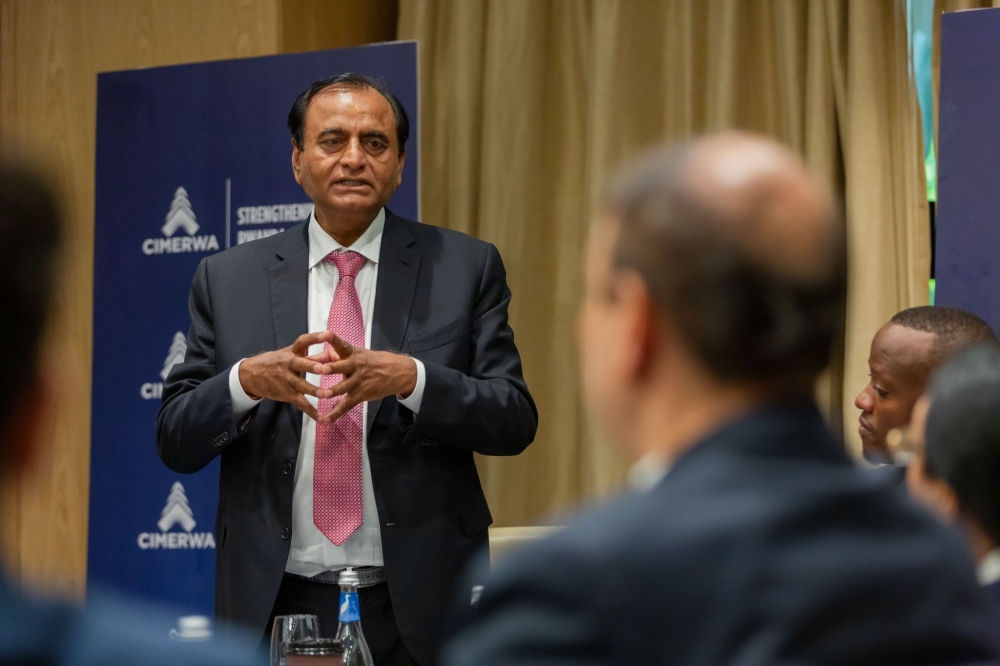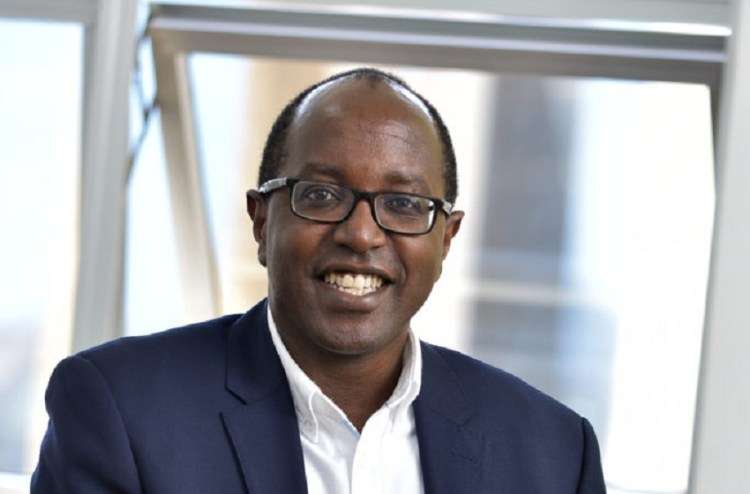As President Ruto champions flagship programmes such as Affordable Housing and Universal Healthcare, a powerful network of Asian and Kenyan business magnates, echoing the Moi-era patronage system, has emerged at the heart of policy and procurement, raising questions of transparency, equity, and undue influence in government decision-making
To unlock the full article:
Choose one of the options below:
- Ksh 10 – This article only
- Ksh 300 – Monthly subscription
- Ksh 2340 – Yearly subscription (10% off)
By The Weekly Vision Investigations
Just like during the late President Daniel arap Moi’s regime, business tycoons of Asian descent, such as Devki Group founder Narendra Raval and Nairobi West Hospital owner Jayesh Saini, alongside their Kenyan counterparts in both the public and private sectors, have emerged as the key drivers behind President William Ruto’s flagship programmes, notably Affordable Housing and Universal Healthcare.
During the Moi era, influential business magnates of Asian origin, including Ketan Somaia, Kamlesh Pattni of the Goldenberg scandal, and Manu Chandaria, were believed to wield significant influence at State House. They secured major government tenders and controlled strategic sectors ranging from banking to manufacturing, setting a precedent for today’s patronage networks.
In January, impeached former Deputy President Rigathi Gachagua alleged that the Affordable Housing Programme was not designed to create jobs but rather to serve as a business enterprise benefiting senior government officials. He claimed that some officials held stakes in Devki Group, which manufactures construction materials such as cement, steel, and iron sheets, and that the mandatory housing levy was effectively creating a guaranteed market for their products.
Unions in the health sector have criticised the SHIF contracts, warning that they concentrate power in private providers at the expense of public hospitals. The Kenya Medical Practitioners, Pharmacists and Dentists Union (KMPDU) argued that outsourcing SHIF technology to Safaricom-linked firms risked “creating another monopoly” instead of expanding universal healthcare
According to the Kenya Revenue Authority, the housing levy has so far collected over KSh 27 billion since its introduction in July 2023. Critics maintain that transparency over allocation remains questionable, with civil society organisations and unions filing court petitions demanding greater oversight.
Analysts point out that Devki Group’s National Cement Company (NCC) has expanded rapidly under Ruto’s administration, acquiring Athi River Mining, Cemtech, and the Nakuru Salgaa plant. The Cemtech acquisition in West Pokot granted the company access to vast limestone and clay deposits, essential for cement production. The conglomerate has also established a clinker line in Kajiado and a cement plant in Kilifi County.
The Affordable Housing Act, 2024, requires formal sector employees to contribute 1.5 per cent of their gross monthly income, matched by an equivalent employer contribution, bringing the total levy to 3 per cent. Yet, Gachagua alleged that favoured contractors are summoned to State House, where they are awarded tenders and directed on where to source building materials.
Despite an estimated national housing deficit of about two million units, with 250,000 new units needed annually, fewer than 5,000 units had been completed under the scheme by mid-2024. This disparity has fuelled accusations that the initiative is enriching suppliers rather than delivering affordable homes to ordinary Kenyans.
President Ruto recently announced, during a meeting with Ugandan President Yoweri Museveni at State House, Nairobi, plans to establish Uganda’s largest cement factory, reportedly involving Devki Group. However, in December last year, the President strongly denied holding any personal interest in the company.
“The people who believe in Kenya, who want to build our nation, are being sabotaged and profiled as enemies, while saboteurs are glorified,” he said. While clarifying that he is not a business partner of Raval, Ruto insisted he was proud of Devki’s role in driving Kenya’s industrialisation.
Ruto also castigated Kenyans who celebrated his cancellation of the Adani Group deal to modernise Jomo Kenyatta International Airport, arguing that it was cancelled purely on legal grounds. He added that the government was developing new mechanisms to build a modern airport “as soon as possible.”
In healthcare, businessman Jayesh Saini and Bliss Healthcare are seen as beneficiaries of the Social Health Insurance Fund (SHIF). Saini was central to a deal that awarded a KSh 104 billion tender to Safaricom PLC and two other firms, Konvergenz Networks Solutions Limited and Apeiro Limited, to provide technology support for the rollout of the Social Health Authority (SHA). Apeiro is linked to Gautam Raval, who was associated with the collapsed KSh 246 billion airport deal involving Adani Group, cancelled after protests, court battles, and pressure from the United States.
Unions in the health sector have criticised the SHIF contracts, warning that they concentrate power in private providers at the expense of public hospitals. The Kenya Medical Practitioners, Pharmacists and Dentists Union (KMPDU) argued that outsourcing SHIF technology to Safaricom-linked firms risked “creating another monopoly” instead of expanding universal healthcare.
Those close to President Ruto describe him as his own “Mr Fix It”, insisting that many of his policies are driven by junior officials who often bypass Cabinet Secretaries and Principal Secretaries to brief him directly. During the signing of performance contracts last year, Ruto emphasised accountability, warning Cabinet Secretaries that each would be assessed based on their ministry’s scorecard. “Excellence, integrity, efficiency and consistency will be rewarded, while failure, negligence, waste and misconduct will prompt corrective action,” he declared. Despite his calls for discipline, critics describe Ruto as a micro-manager.
A former Agriculture Ministry official who worked with him under President Mwai Kibaki recalled:
“You would come with a very well-prepared proposal, but he would stop you midstream and continue the discussion, having already consulted with your juniors. It is no surprise when he reminds his critics that he has a PhD and needs no one to teach him.”
Nonetheless, Ruto’s administration, like those before it, features a circle of powerful insiders. They include Chief of Staff and Head of Public Service Felix Koskei, National Assembly Majority Leader Kimani Ichung’wah, ODM Leader Raila Odinga, Health CS Aden Duale, Defence CS Soipan Tuya, National Assembly Speaker Moses Wetang’ula, Kapseret MP Oscar Sudi, and his influential aide Farouk Kibet.
Kibet, in particular, is notorious for flaunting his influence at public events, often refusing to share the microphone with Cabinet Secretaries and Members of Parliament. Koskei, meanwhile, has been accused of centralising power, issuing directives that have occasionally been defied by county governments. His style is likened to that of his predecessor Joseph Kinyua, under whom Cabinet and Principal Secretaries were forced to pass before accessing President Uhuru Kenyatta.
Though described as a “gentleman in the room” during State House meetings, insiders recall Kinyua as a strict gatekeeper who dismissed poorly prepared officials. Observers now argue that Ruto’s system reflects a familiar pattern: a presidency dominated by influential insiders and business magnates shaping national policy from behind the scenes.
[/full]




